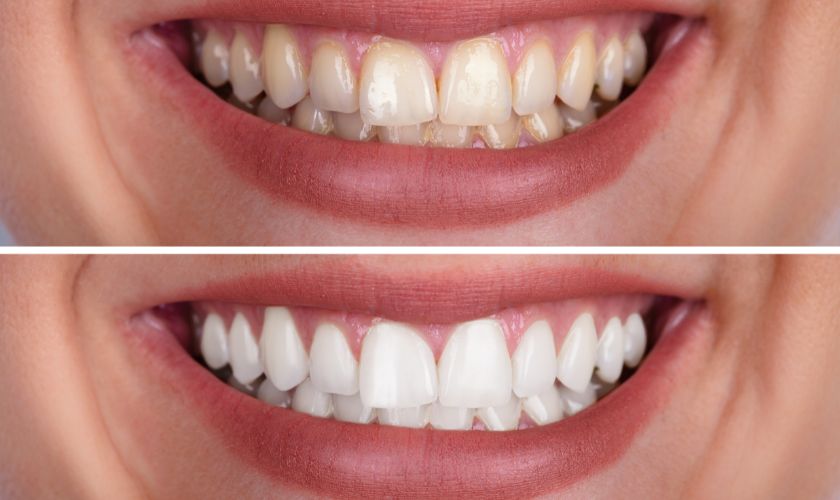503-590-7574
Root Canal vs. Tooth Extraction: Which Is Better?
February 17, 2023
Restorative Dentistry

Are you considering getting a root canal or a tooth extraction? Which is the best option for your teeth? You’re not alone! In this article, we’ll explore the pros and cons of each dental procedure and help you decide which is the best choice for your oral health. Read on to learn more about root canals and extractions and how they can benefit your oral health.
Pros and Cons of a Root Canal
When choosing between a root canal and tooth extraction, there are many things to consider. Here are some pros and cons of each option:
Root Canal Pros
- A root canal can save your natural tooth.
- It is typically less expensive than having a tooth extracted.
- The procedure is usually not very painful.
Root Canal Cons
- The procedure can be time-consuming.
- It may require multiple visits to the dentist.
- There is a small risk of infection.
Tooth Extraction Pros
- Tooth extraction is often less expensive than a root canal.
- The procedure is usually not very painful.
- It is often quicker than a root canal.
Tooth Extraction Cons
- You will no longer have your natural tooth.
- An artificial tooth will need to be placed where the extracted tooth was originally located. This can be more expensive than a root canal.
Pros and Cons of a Tooth Extraction
There are a few pros and cons to a tooth extraction that you should be aware of before making a decision. A tooth extraction is generally less expensive than a root canal, and your dental insurance may cover it. Additionally, it is a relatively quick and straightforward procedure that can be completed in one dentist visit. However, there are also some potential downsides to an extraction. First and foremost, it is an invasive procedure that can cause pain and discomfort. Additionally, an extracted tooth will need to be replaced with either a dental implant or bridge, which can add to the overall cost of the procedure.
The Cost Comparison Between Root Canal and Tooth Extraction
The cost of a root canal can vary depending on the damage’s severity and the tooth’s location. A tooth extraction is typically less expensive than a root canal, but it is important to consider all factors before deciding.
A root canal may be necessary if the nerve or blood supply to the tooth has been damaged. This can happen due to decay, infection, or trauma. The procedure involves removing the damaged tissue and cleaning out the infected area. A root canal can be expensive, but it is often less expensive than having the tooth extracted.
A tooth extraction is typically only recommended when there is no other option. This may be due to severe decay or damage that cannot be repaired with a root canal. Extractions can also be necessary if a tooth is impacted or crowding other teeth. The cost of extraction will depend on the type of anesthesia used and whether or not sedation is needed.
What Type of Teeth Are Suitable for Each Procedure
When deciding between a root canal vs. tooth extraction, the best option for your teeth depends on a variety of factors. Here’s a look at what type of teeth are suitable for each procedure:
Root Canal: Teeth damaged by decay or injury can often be saved with a root canal. This procedure involves removing the damaged tissue from the inside of the tooth and then filling and sealing the tooth.
Tooth Extraction: In some cases, a tooth may be too damaged to save with a root canal. When this happens, an extraction may be the only option. Extractions can also be used to remove wisdom teeth that are causing pain or crowding.
Common Myths About These Procedures
There are many myths surrounding dental procedures, but when it comes to root canals and tooth extractions, some common misconceptions could cost you your smile. Let’s dispel a few of these myths:
1. Root canals are painful: A root canal is often necessary when the nerves in your teeth become damaged or diseased. This procedure involves removing the damaged tissue and cleaning out the infected area. While this may sound painful, root canals are routine, and most patients report little to no pain during or after the procedure.
2. Tooth extractions are always painful: Tooth extractions are only necessary in cases where the tooth is severely damaged or decayed and cannot be saved with a root canal. The extraction process involves numbing the area around the tooth and gently removing it from the socket. While some patients may experience discomfort afterward, it is typically not considered a painful procedure.
3. Root canals are expensive: The cost of a root canal will vary depending on your insurance coverage and the severity of your case, but they are generally less expensive than having a tooth extracted. In some cases, your insurance may even cover the entire procedure cost.
4. Tooth extractions are always covered by insurance: Unfortunately, this is not always the case. Some insurance plans will only cover basic tooth extractions, while others may not cover them at all. It’s important to check with your
Conclusion
While deciding between a root canal vs. tooth extraction for your teeth can often be a difficult decision, it is important to keep in mind that both procedures have distinct benefits and drawbacks. In general, a root canal is considered the better option for preserving the natural structure of your teeth due to how it removes infected tissue while leaving your original tooth intact. On the other hand, if you wish to relieve yourself from damaged or problematic teeth quickly and easily, an extraction may be more suitable for you. Ultimately, consulting an experienced dentist will help you make the right choice based on your unique circumstances.
Recent Posts

Gum Recession: Causes, Treatments, and Maintaining a Healthy Smile

Maximizing Recovery: Dos and Don’ts Following Tooth Extraction

What is the Best Method to Whiten Teeth?

When Should You Schedule an Oral Cancer Screening?

